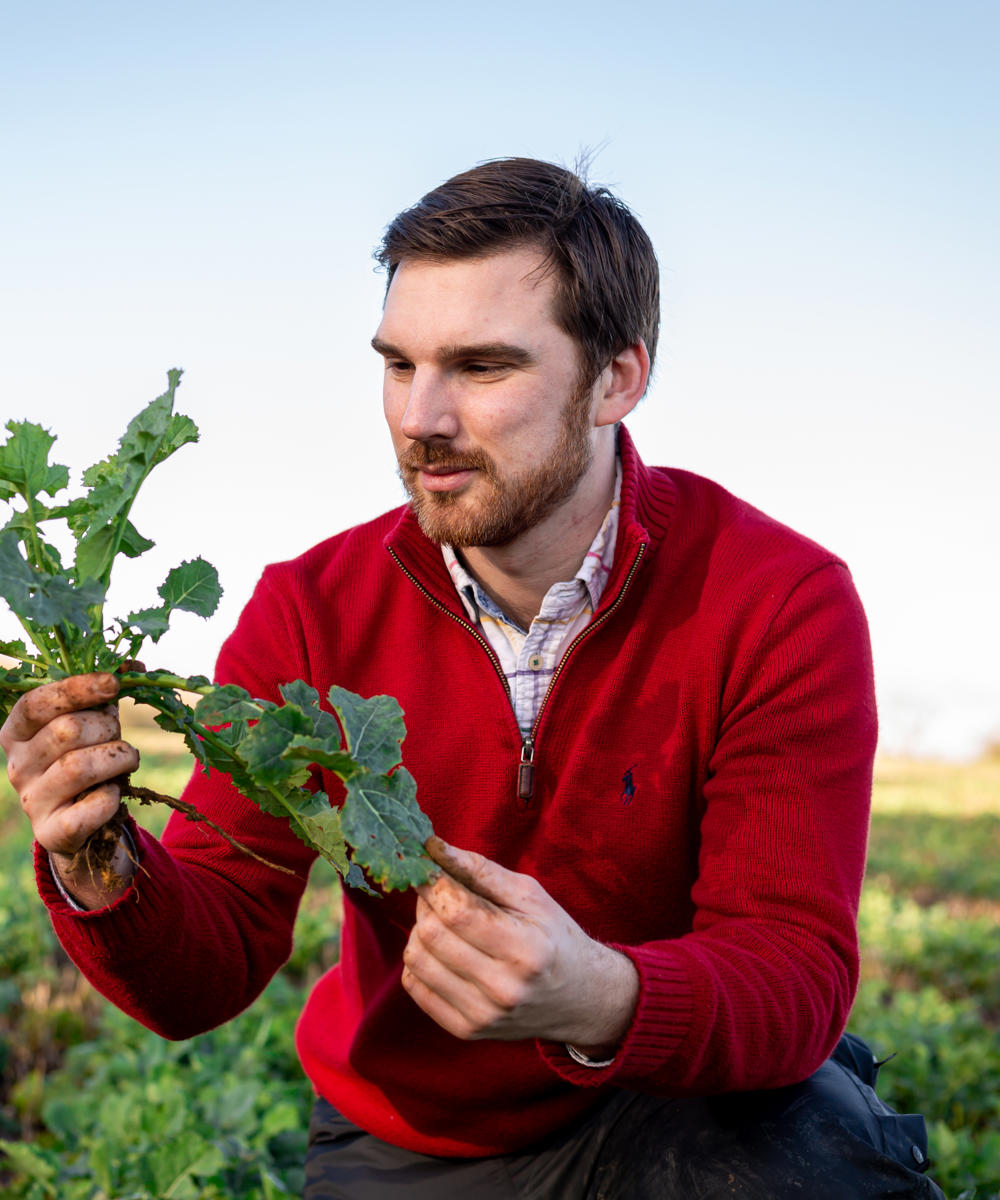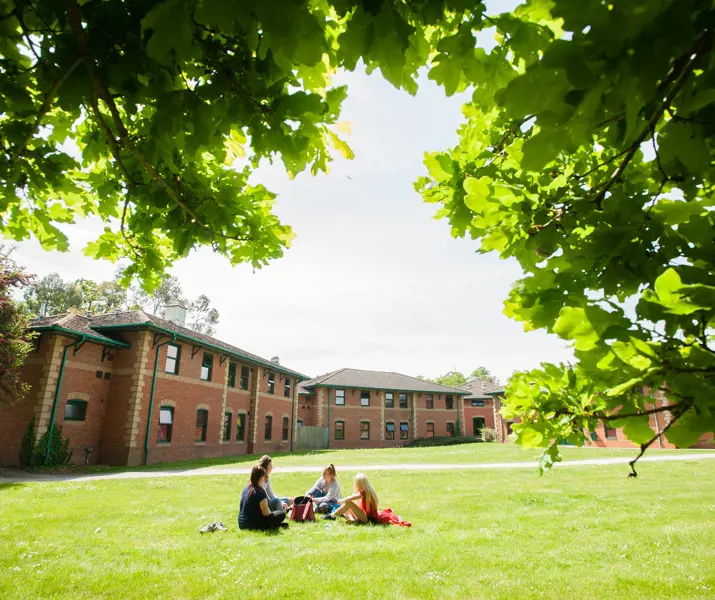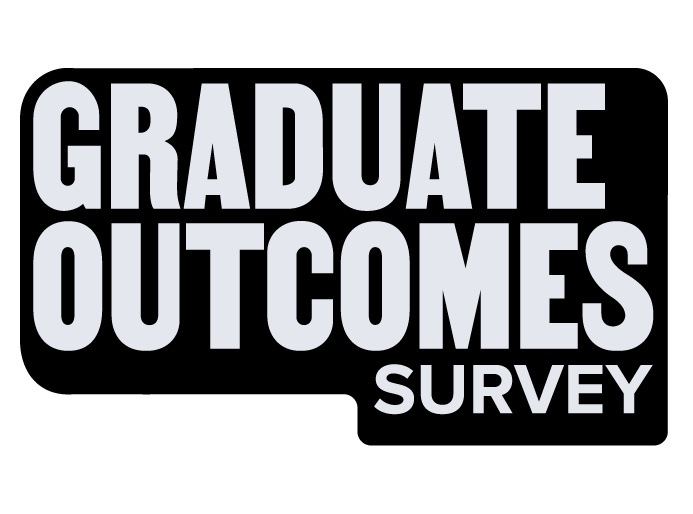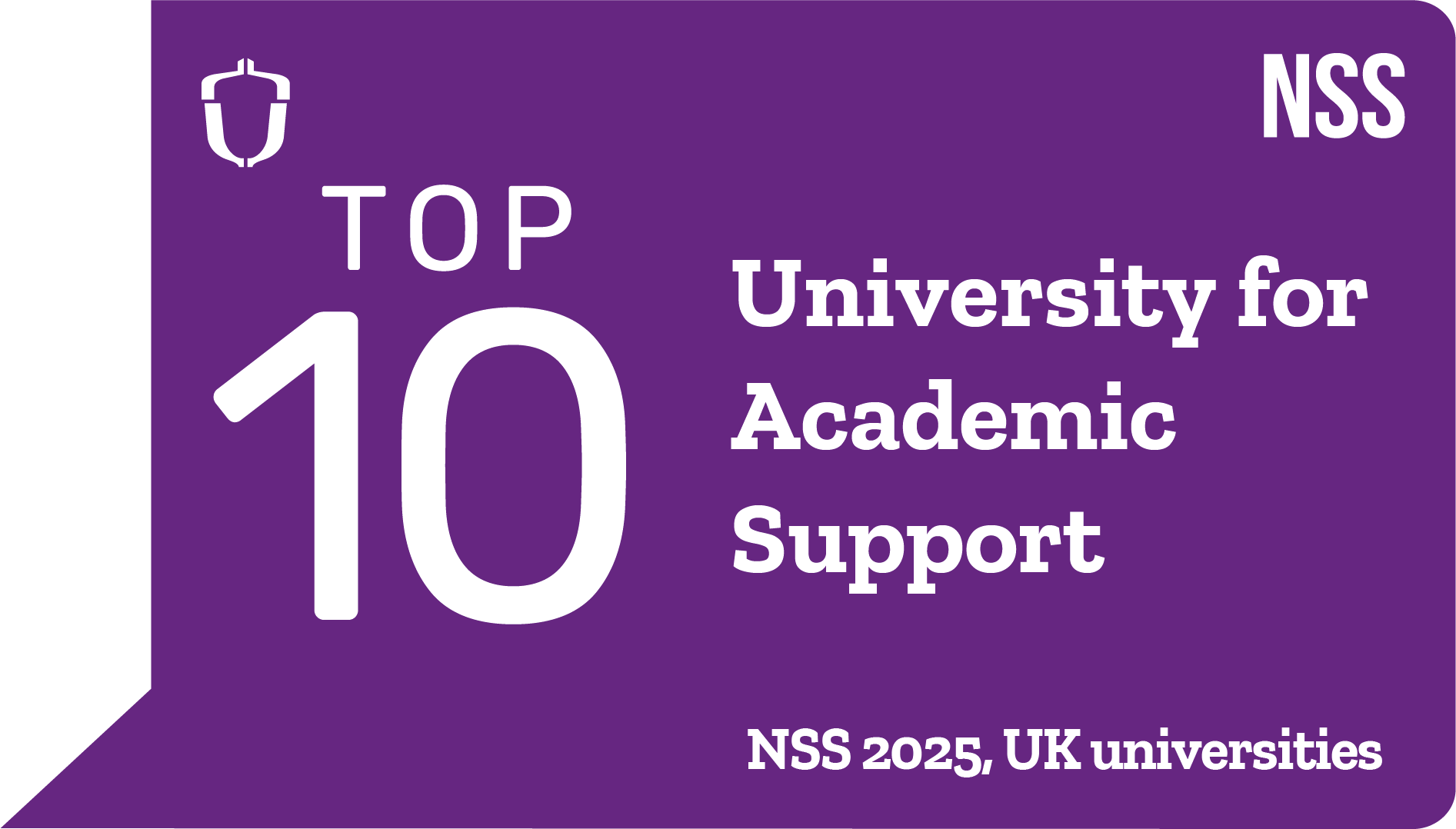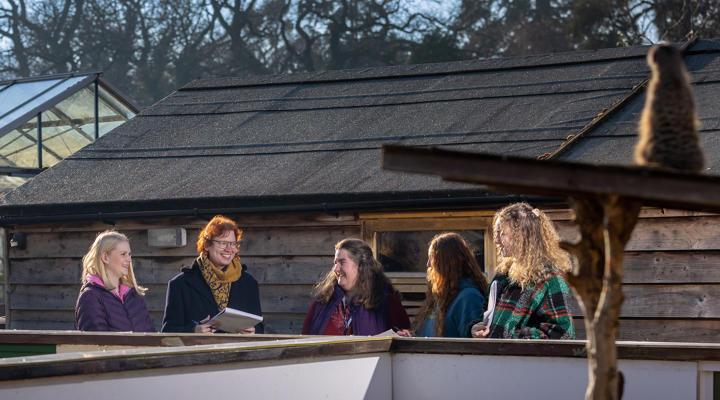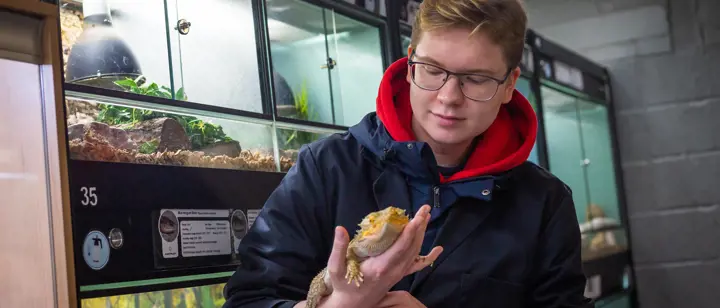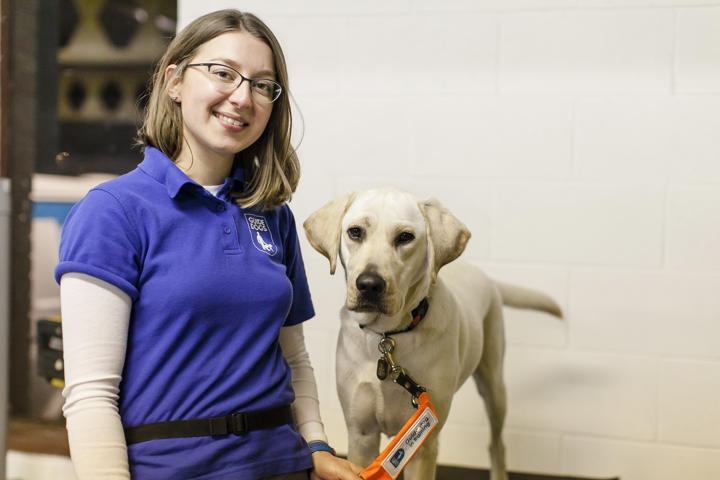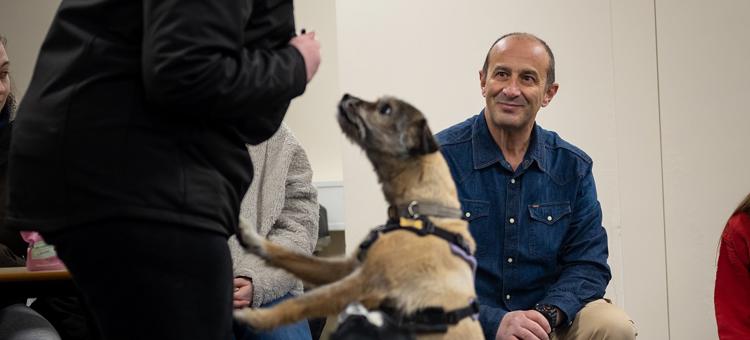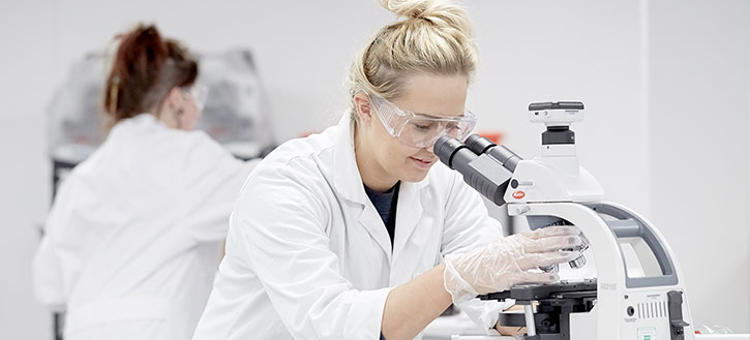You’ll benefit from access to diverse facilities, including professional-standard laboratories, a 70-species animal collection with domestic and non-domestic species, 380-hectares of commercial farmland across five sites, and a large equine centre.
Apply theory to practice as you get hands-on in our dissection and microbiology laboratories, learning more about a range of species. You’ll also investigate ecological principles and apply them to the real world on our expansive 360-hectare estate that boasts rare plant and animal species. It’s an ideal setting for observing and conserving British wildlife.
In addition to studying core topics including genetics and cell biology, you’ll have the opportunity to undertake a field course either in the UK or abroad. Experience real-world applications of biology on our commercial farm and equine and canine therapy and hydrotherapy centres, and be well-prepared to launch a career within research, clinical laboratories, or a range of related industries.
- UCAS tariff points | A typical offer for this course is 144-128 UCAS tariff points or equivalent including a biological science.
- GCSE | A minimum of five GCSEs at grade 9 to 4, (or A* to C grades if relevant) or equivalent, to include Science (Biology or Chemistry or combined science), English Language and Mathematics.
- A-level | Typical offer is BBB or equivalent. This must include a minimum of two A Levels including one in Biology at grade C or above.
- Vocational Award | Typical offer is a DDD in an Extended Diploma in a relevant subject.
- Access | Typical offer is 128 UCAS tariff points in an Access to Higher Education Diploma to include a minimum of a pass in a Biology module at Level 3.
- IB | Typical offer is 128 UCAS tariff points in an IB Diploma, to include Biology at H5 and at least one additional Higher at H3 or above. This must also include Maths and English Language at a minimum of Standard Level S3 if equivalent GCSEs have not been obtained.
- Scottish Highers | Typical offer is 128 UCAS tariff points in Scottish Highers. This must include Advanced Higher Biology at C and at least one additional higher.
- Irish leaving Certificate | Typical offer is 128 UCAS tariff points in the Irish Leaving Certificate. This must include a minimum of two Highers including one in Biology at H4 or above. This must also include Maths and English Language at a minimum of Ordinary Level.
- OCR Cambridge Technical | Typical offer is a DDD in a Cambridge Technical Extended Diploma in a relevant subject.
- T Level | An overall grade of Distinction, to include grade B or above in the Core component in a Science subject. T Level subjects considered are Animal Care and Management (Science Pathway), Healthcare Science and Science. Health will be considered on an individual basis.
We welcome students with equivalent qualifications. Please contact us to discuss.
We may interview mature applicants and those with non-traditional qualifications to ensure this is the right course for you.
Previous learning towards a university-level qualification or relevant work experience may count as credit for this course.
Please contact us for further information.
Email us
Your support network
You'll benefit from a strong support network from day one to be the best you can be. This will range from your personal tutor and specialist academic support team (our Achievement and Success Centre) to dedicated wellbeing and employability (Innovation, Careers and Enterprise) centres.
Academic support
You’ll have your own personal tutor while you’re here who will support you to succeed in your studies. You’ll also have access to our academic and wellbeing support teams who run regular workshops and one-to-one sessions on campus and online.
Alongside this, we have a comprehensive bank of online study skills resources to help you make the most of your qualification.
Your learning experiences
You'll experience a range of teaching methods to strengthen your digestion of topics, including lectures, workshops and practical sessions, as well as supported work placement learning as part of many courses.
Your career
Each year of your course will be made up of two semesters, within which you’ll study compulsory and optional modules on different industry-focused topics, enabling you to develop your own unique portfolio of knowledge, skills and experience, ready for your career. The course is taught in English.

